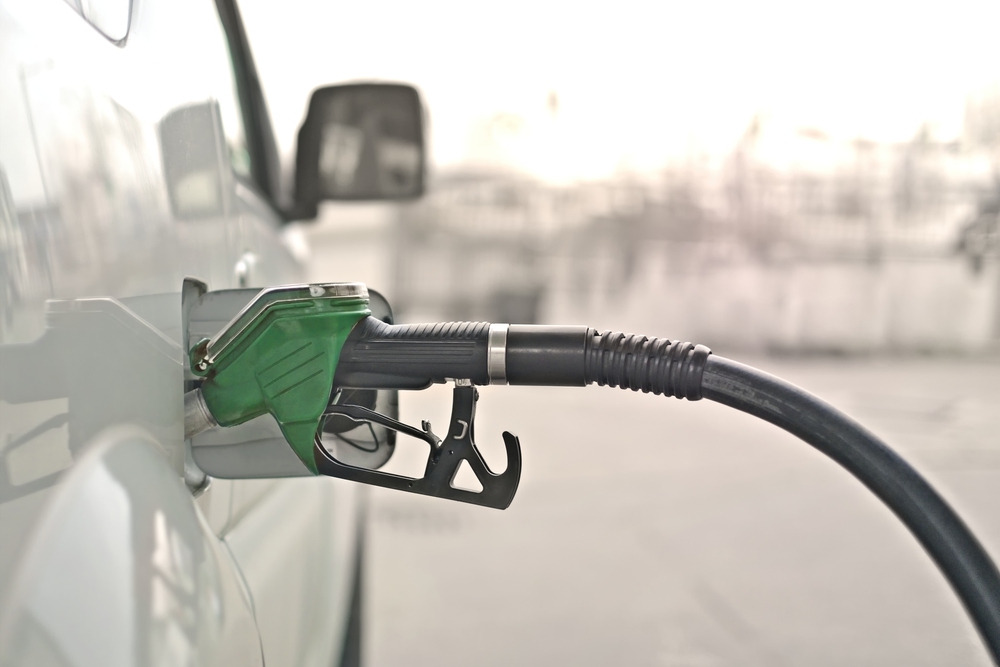With gas prices fluctuating, getting the most out of every gallon is more important than ever. Fortunately, simple changes to your driving habits and vehicle maintenance can make a big difference. From adjusting your speed to keeping your tires properly inflated, these 14 tips will help you maximize fuel efficiency and keep more money in your pocket.
Drive Smoothly

Aggressive driving, rapid acceleration, hard braking, and excessive speeding wastes fuel quickly and reduces efficiency. Smooth acceleration and gradual braking improve gas mileage by up to 30% overall. Maintain a steady speed, anticipate stops in advance, and reduce unnecessary fuel consumption. Being mindful of your driving habits significantly enhances fuel economy and vehicle longevity.
Stick to the Speed Limit

Fuel efficiency typically drops above 50 mph, with every 5 mph over that reducing mileage dramatically. Cruise control can help maintain a steady speed, improving efficiency on highways with less effort. Obeying speed limits not only saves fuel but also keeps you safer on the road overall. Driving at optimal speeds ensures better mileage, safety, and smoother engine performance.
Use Cruise Control Wisely

On highways, cruise control helps maintain consistent speeds, reducing unnecessary acceleration and wasted fuel. However, avoid using it on hilly roads, where manual adjustments are more fuel efficient overall. Smart use of cruise control can improve mileage significantly on long distance road trips. Maintaining a stable speed minimizes energy waste and engine strain effectively.
Reduce Idling Time

Idling burns fuel unnecessarily, turn off your engine if you’ll be stopped for more than one full minute. Modern cars don’t need long warm-ups, and excessive idling can waste gas while wearing out components. Restarting your engine actually uses less fuel than leaving it running for extended periods. Avoiding unnecessary idling keeps your engine running efficiently and conserves fuel.
Related Post: 13 Reasons Why Compact SUVs Still a Good Choice for City Living
Keep Tires Properly Inflated

Underinflated tires increase rolling resistance, making your engine work harder and burn more fuel unnecessarily. Check tire pressure regularly and keep it at the recommended level for optimal efficiency and safety. Proper inflation also extends tire lifespan, improves handling, and enhances overall driving comfort. Well maintained tires contribute to better gas mileage and smoother rides.
Related Post: Buying Your First Car? Read These 15 FAQs Before You Sign
Lighten Your Load

Extra weight in your vehicle forces the engine to use more fuel than necessary. Remove unnecessary cargo, especially heavy items in the trunk, to improve overall efficiency significantly. Every 100 pounds of excess weight can reduce fuel economy by up to 2%. Keeping your vehicle as light as possible enhances fuel savings and performance.
Related Post: New or Used? 15 Crucial Car Buying FAQs Uncovered!
Avoid Roof Racks and Cargo Carriers

Roof racks and cargo carriers increase aerodynamic drag, reducing fuel efficiency, especially at high speeds on highways. If you must use one, opt for a streamlined design and remove it when unnecessary. Keeping your vehicle as aerodynamic as possible greatly improves overall gas mileage. Minimized drag results in reduced fuel consumption and better performance.
Related Post: Car Care Secrets: 15 Must-Know Auto Tips for Every Driver
Use the Right Motor Oil

Using the manufacturer-recommended motor oil improves engine efficiency, fuel economy, and overall longevity. Thicker oils create more resistance, forcing the engine to work harder and consume more fuel quickly. Regular oil changes with the correct viscosity help maintain peak vehicle performance and efficiency. The right oil ensures smoother engine operation and optimal gas mileage.
Related Post: Is Your Car in Trouble? 15 Warning Signs and Fixes
Replace Air Filters When Needed

A clogged air filter can reduce fuel efficiency by restricting airflow to the engine unnecessarily. Modern cars have sensors that adjust for airflow, but clean filters still improve overall performance. Check your owner’s manual for recommended replacement intervals and keep filters regularly clean. Proper airflow management ensures optimal fuel combustion and enhanced efficiency.
Related Post: Car Maintenance Made Easy: 15 Essential FAQs Every Driver Should Read!
Maintain Your Engine

Regular tune-ups and fixing issues like faulty spark plugs or a malfunctioning oxygen sensor can improve efficiency. A bad oxygen sensor alone can reduce mileage by up to 40%, increasing costs. Keeping your engine in top condition ensures maximum performance and long term savings. Routine maintenance extends engine lifespan and improves gas mileage significantly.
Related Post: Mechanic-Approved! 12 Expert Answers to Your Car Problems
Plan Efficient Routes

Avoid congested routes, excessive stop-and-go traffic, and unnecessary detours to save both fuel and time. Using GPS or real time traffic apps can help you find the most efficient path home. Shorter, smoother routes reduce fuel consumption, emissions, and overall wear on your vehicle. Smart route planning saves money and minimizes driving-related stress.
Related Post: The Ultimate Car Owner’s Guide: 15 Common Auto Questions Solved
Combine Trips

Cold engines use more fuel, so combining errands into one trip reduces warm up periods significantly. A single multi stop trip is more efficient than multiple short trips throughout your day. Planning ahead minimizes unnecessary mileage, fuel waste, and vehicle wear and tear. Consolidating trips helps improve efficiency and lowers gas expenses effectively.
Related Post: 12 Cheap Electric Cars That Won’t Leave You Stranded
Use Air Conditioning Wisely

A/C puts extra strain on the engine, reducing fuel efficiency when overused. At lower speeds, roll down the windows instead, but at high speeds, keep them closed. Finding a balance between comfort and efficiency helps maximize fuel savings consistently. Limiting unnecessary A/C usage improves mileage while maintaining comfortable driving conditions.
Related Post: Affordable EVs That Actually Go the Distance – 13 Best Picks
Choose Fuel-Efficient Tires

Low rolling resistance tires are designed to improve fuel economy by reducing unnecessary friction. While they may cost more upfront, they help save significant money in the long run. Check for fuel efficient tire options when replacing your current set for better efficiency. The right tires contribute to smoother driving and lower fuel consumption overall.
Related Post: 13 Car Horns So Loud, They’ll Wake the Entire Neighborhood!
Improving fuel efficiency isn’t just about saving money, it also reduces harmful emissions and prolongs your vehicle’s lifespan significantly. Small changes in driving habits and regular maintenance can lead to major long term savings and benefits. By following these practical tips, you’ll keep your car running efficiently while spending less at the pump consistently. Start making these changes today and enjoy better mileage, lower costs, and smoother driving every day!
Disclaimer: This list is solely the author’s opinion based on research and publicly available information.
13 SUVs Known for Holding Their Value and Staying on the Road for Over 200,000 Mile

When buying an SUV, longevity and resale value are crucial factors. Some models are built to withstand high mileage, regularly surpassing 200,000 miles with proper maintenance. These vehicles also retain their value well, making them smart investments. Here are 13 SUVs known for their durability, reliability, and strong resale value.
Read it here: 13 SUVs Known for Holding Their Value and Staying on the Road for Over 200,000 Mile
Affordable EVs That Actually Go the Distance – 13 Best Picks

Electric vehicles (EVs) are no longer just a luxury, there are plenty of budget-friendly options that offer impressive range without breaking the bank. Whether you’re looking for a daily commuter, a road trip companion, or just a solid entry into the world of EVs, you don’t have to sacrifice distance for affordability. These 13 electric cars deliver the best balance of price, efficiency, and practicality, ensuring you get the most miles for your money. Here are the top picks that prove you can go electric without spending a fortune.
Read it here: Affordable EVs That Actually Go the Distance – 13 Best Picks
12 Cheapest Electric Cars That Still Have Great Range

Switching to an electric vehicle doesn’t have to mean spending a fortune. While many high-end EVs dominate the headlines, there are plenty of affordable options that still deliver impressive range. These vehicles offer the perfect balance of efficiency, technology, and practicality, making them great choices for budget-conscious drivers. If you’re looking for an EV that won’t break the bank but can still take you the distance, these models prove that you don’t have to compromise.
Read it here: 12 Cheapest Electric Cars That Still Have Great Range
You’ll love these related posts:
- 14 Cars That Make More Sense to Buy Pre-Owned
- SUVs for Seniors: Comfort and Safety Features That Matter Most As You Age
- These 12 Cars Are Appreciating Like Fine Wine – And Why You Should Consider Buying Now
- The Secret History of Car Brand Logos: Hidden Meanings and Design Evolution
- 13 Self-Healing Car Paint That it Finally Becoming a Reality?


